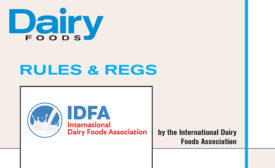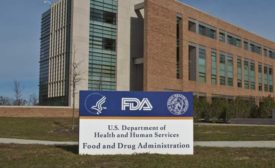Home » Keywords: » FDA regulations
Items Tagged with 'FDA regulations'
ARTICLES
Sugar reduction a huge component of health and wellness’ popularity
Trend expected to roll on like a freight train.
March 17, 2025
At long last, FDA’s new yogurt standard is here
IDFA commends the FDA for taking this first step for the benefit of consumers, industry and public health.
July 19, 2021
Know your rights during an FDA inspection
It is essential for dairy companies to know where FDA’s authority ends
February 5, 2018
FDA proposes to extend compliance dates for Nutrition Facts label final rules
The move is in response to concerns companies and trade associations have shared with the agency regarding the time needed for implementation.
October 5, 2017
Food safety
Dairy processing facilities must follow new FDA intentional adulteration rule
This rule in many respects parallels the Preventive Controls Rule for Human Food with the exception that it deals with intentional bad acts.
June 2, 2016
Food safety
FDA's updated food facility registration system is available Monday Oct. 22
Facilities can register online, via mail or fax. FDA encourages online registration.
October 20, 2012
Webinar: Setting the Table with Smarter Food
IBM Food Technology is hosting its second installment of its series “Setting the Table with Smarter Food,” scheduled for Nov. 3 at 1 p.m. EDT.
November 1, 2011
Stay ahead of the curve. Unlock a dose of cutting-edge insights.
Receive our premium content directly to your inbox.
SIGN-UP TODAYCopyright ©2025. All Rights Reserved BNP Media.
Design, CMS, Hosting & Web Development :: ePublishing








